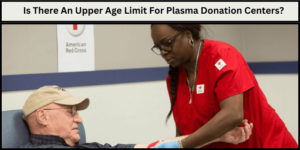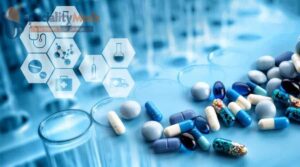One typical side effect of the skin condition acne is pimples. Usually, you’ll get pimples all over your face. Clogged pores are the root cause of acne. Although many adults can get acne at any age, it often affects teenagers and young adults. Acne scarring can be stopped using accessible treatments.

Overview
What is acne?
Acne is a common skin condition that occurs when your skin’s pores clog. The underlying cause of pimples, including whiteheads and blackheads, is pore blockages. Unpleasant, pus-filled lumps on your skin that can sometimes pain are called pimples.
Acne vulgaris is the medical term for this illness.
What are the types of acne?
Acne comes in type of forms, including:
1. Fungal acne: When yeast accumulates in your hair follicles, it can cause fungal acne. These may feel irritated and scratchy.
2. Cystic acne: Deep, pus-filled pimples and nodules are a symptom of cystic acne. These might leave scars.
3. Hormonal acne: Adults with hormonal acne have excessive sebum production that clogs their pores.
4. Nodular acne: Severe acne that appears as sensitive, nodular lumps under the skin and as pimples on the skin’s surface is known as nodular acne.
Any of these forms of acne can lower your self-esteem, and the scars left by cystic and nodular acne can harm your skin over time. A healthcare expert should be consulted as soon as possible to determine the best course of action for you.
Who does acne affect?
Acne affects most people at some point in their lives. Acne can affect adults as well, however, it is more common in teenagers and young adults going through hormonal changes. Adult acne is more prevalent in women and in those whose gender assignment was assigned to them at birth (AFAB). You might be more prone to acne if it runs in your family (genetics).
How common is acne?
You’re not alone if you suffer from acne. The most prevalent skin ailment among people is acne. 80 % of adults between the ages of 11 and 30 are predicted to have minor acne.
Where on my body will I have acne?
The most common areas where acne might appear on you are on your:
1. Face.
2. Shoulders.
3. Upper back.
4. Chest.
5. Forehead.
Your entire body is covered in oil glands. The most oil glands are found in areas where acne is most common.
Symptoms and Causes
What are the symptoms of acne?
Skin-related symptoms of acne include:
1. Pimples (pustules): Pus-filled bumps.
2. Papules: pimples that are small and discolored, usually ranging in hue from red to purple or darker than your skin tone.
3. Blackheads: Blocked pores having a dark cap.
4. Whiteheads: White-topped pores that are plugged.
5. Nodules: Uncomfortable, large bumps beneath your skin.
6. Cysts: Under your skin, there are painful tumors loaded with pus.
Mild acne that occasionally produces a few pimples can lead moderate acne to produce inflammatory papules. Severe acne is the cause of nodules and cysts.
What causes acne?
Hair follicles or plugged pores are the root cause of acne. A hair strand is stored in each of your hair follicles, which are tiny tubes. Your hair follicles are the exit points for many glands. A clog happens when there’s too much material inside your hair follicle. You can get clogged pores with:
1. Sebum: A greasy material that acts as a barrier to shield your skin.
2. Bacteria: On your skin, little levels of germs are naturally present. A high level of germs might clog your pores.
3. Dead skin cells: To allow for the growth of new cells, your skin cells shed often. Dead skin cells might become lodged in your hair follicles when your skin releases them.
A pimple is caused by chemicals that clog your pores and block your hair follicle. This sets off an inflammatory response that manifests as pain and swelling. Inflammation can also be seen in skin discolorations, such as the redness surrounding a zit.
Triggers of acne
Some things in your surroundings might aggravate an acne outbreak or cause acne to flare up, such as:
1. Wearing headgear, such as sports helmets and hats, and clothing that is too tight.
2. Air pollution and specific meteorological factors, particularly excessive humidity.
3. Using fatty or oily personal care items (such as thick lotions and creams) or working in a grease-prone environment (such as frying oil-filled restaurants).
4. Cortisol levels rise in response to stress.
5. A side effect of a medication.
6. Picking at your acne.
Foods that cause acne
Some research associate specific foods and diets with acne, such as:
1. Whey protein.
2. Diets high in sugar.
3. Skim milk.
Acne outbreaks may result from high-sugar diets, although acne is not directly related to chocolate.
Eat a healthy, well-balanced diet full of fresh produce, especially fruits and vegetables high in vitamin C and beta-carotene (which helps reduce inflammation) to lower your risk of acne.
Hormones and acne
The primary hormonal cause of acne is testosterone, an androgen hormone. This usually starts to happen in adolescence and early adulthood. Hormone activity may also cause you to notice acne developing around the time of your period. Acne can be brought on by sensitivity to this hormone, surface germs on your skin, and chemicals secreted by your body’s glands.
Diagnosis and Tests
How is acne diagnosed?
Acne can be diagnosed by a medical professional during a skin exam. During this examination, the doctor will take a detailed look at your skin to learn more about your symptoms. They could also inquire about acne risk factors such as:
1. Are you feeling stressed?
2. Is acne a family history for you?
3. Do you get breakouts during your menstrual cycle if you’re a woman or an AFAB person?
4. Which medications are you using at the moment?
If you experience sudden, severe outbreaks of acne, especially if you’re an adult, your healthcare provider may provide testing to diagnose any underlying issues, but they won’t need to do any diagnostic tests specifically for acne.
Who treats acne?
Acne can be diagnosed and treated by a dermatologist or general healthcare professional. A dermatologist can assist if your treatment-resistant acne doesn’t clear up.
How severe can acne get?
Acne severity is ranked by dermatologists:
1. Grade 1 (mild): Primarily blackheads and whiteheads with a few papules and pustules thrown in.
2. Grade 2 (moderate or pustular acne): Many pustules and papules, primarily on your face.
3. Grade 3 (moderately severe or nodulocystic acne): Many papules and pustules, with sporadic nodules, are inflammatory. Your chest and back can also be impacted.
4. Grade 4 (severe nodulocystic acne): Many big, painful, swollen nodules and pustules.
Management and Treatment
How is acne treated?
Treating acne can be done in a number of ways. The kind, severity, and age of your acne all influence the kind of treatment that works best for you. A medical professional may advise you to treat your skin using medicated therapies, topical drugs, or oral medications. Stopping the formation of new zits and healing existing skin lesions are the two main objectives of acne treatment.
Topical acne medications
To treat your skin, your doctor can advise applying a topical acne medicine. These drugs can be applied topically to your skin in the same manner as moisturizers or lotions. Products containing any of the following ingredients may be among them:
1. Benzoyl peroxide: This is offered as a leave-on gel or wash as an over-the-counter product (such as Clearasil®, Stridex®, and PanOxyl®). It goes after surface bacteria, which frequently makes acne worse. Your skin will be less irritated by wash formulas and lower concentrations.
2. Salicylic acid: This is available over-the-counter as an acne lotion or cleanser. It helps to remove the outer layer of damaged skin. Salicylic acid unclogs your hair follicles by dissolving dead skin cells.
3. Azelaic acid: This natural acid can be found in rye, barley, and wheat, among other crops. It gets rid of microorganisms on the skin and reduces edema.
4. Retinoids (vitamin A derivatives): Retinol helps prevent clogged pores, which are the initial indicators of acne and breaks up blackheads and whiteheads. Retinoids are suitable for the majority of people. To stop new zits from forming, these drugs must be applied to the whole area of skin afflicted by acne; they are not spot therapies. Before seeing noticeable improvements, you frequently need to utilize them for several months.
5. Antibiotics: Antibiotics applied topically, such as erythromycin and clindamycin, inhibit surface microorganisms that exacerbate and cause acne. When used with antibiotics, benzoyl peroxide increases their efficacy.
6. Dapsone: Another topical gel with antibacterial qualities is Dapsone (Aczone®). It addresses pimple inflammation.
Oral acne medications
Tablets that you use orally to treat acne are known as oral acne medicines. Some varieties of oral acne treatments are as follows:
1. Antibiotics: Bacteria-induced acne is treated with antibiotics. Minocycline, doxycycline, and tetracycline are common antibiotics used to treat acne. They are effective for moderate to severe acne.
2. Contraceptives: There are occasions when women and people AFAB with acne can benefit from using specific contraceptives. A number of birth control pills kinds have been approved by the FDA in the United States to treat acne. Estrostep®, Beyaz®, Ortho Tri-Cyclen®, and Yaz® are a few brand names. The main AFAB sex hormones, estrogen, and progesterone, a naturally occurring steroid that aids in menstrual regulation, are combined in these pills.
3. Hormone therapy: Some people with acne benefit from hormone therapy, particularly if their acne flares up during menstruation or if their irregular periods are brought on by an excess of the hormone androgen. Low-dose estrogen and progesterone birth control pills or spironolactone medicine, which inhibits the action of specific hormones at the level of your hair follicles and oil glands, are two forms of hormone therapy.
Additional acne therapies
A healthcare professional may suggest one of several acne therapies to clean your skin if topical or oral drugs don’t work effectively for your acne or if your acne has left scars on your skin, such as:
1. Steroids: Large nodules can be injected with steroids to reduce inflammation and cure severe acne.
2. Lasers: Acne scars are treated with lasers and light therapy. A laser applies heat to the harmed collagen under your skin. This depends on your body producing new, healthy collagen as a result of the wound-healing response, which promotes the formation of new skin to replace the old.
3. Chemical peels: To eliminate the outermost layer of aging skin, this treatment employs certain chemicals. By eliminating the outermost layer of skin, acne scars may be less noticeable on the smoother new skin that emerges.
How do antibiotics treat acne?
Antibiotics are drugs that work against bacteria. Certain medications used to treat acne can help reduce inflammation. Acne is a result of clogged pores caused by bacteria. Why antibiotics are to responsible for:
1. Preventing the entry of microorganisms into your body.
2. Destroying bacteria.
3. Preventing bacteria from multiplying.
Antibiotics are prescribed by a medical professional if you have an infection or bacterial acne. Antibiotics can be used to treat a disease caused by bacteria that has entered a popped pimple, which can grow and become uncomfortable. You shouldn’t use this drug over an extended period of time to treat acne because it isn’t a cure.
What is the best way to treat acne at home?
If you have acne, you can begin a skin care regimen at home by doing the following:
1. Wash your skin at least once a day with warm, not hot, water and a light cleanser. Over-the-counter skin care treatments called cleaners aid in cleaning your skin.
2. Cleaning your skin after perspiration or physical activity.
3. Astringents, toners, exfoliants, and alcohol-containing skin care products should be avoided as they can irritate your skin.
4. Taking off your makeup right before bed or at the end of the day.
5. Selecting a moisturizer without oil to use on your skin following cleansing.
6. Do not squeeze, pop, or pick at your acne. If you want to avoid getting scars on your skin, let it heal itself.
See a medical professional if treating acne at home using a regimen that doesn’t work for you.
Is it safe for pregnant women to have acne treatment?
Pregnancy poses a risk to the safety of several oral and topical acne medications. It’s crucial to talk to your healthcare practitioner about acne treatments if you are pregnant or intend to become pregnant and to let them know if you do.
What is the duration of acne resolution?
The typical time for acne breakouts to go away on their own is one to two weeks. Acne can disappear more quickly if you accelerate your body’s healing process with medication and proper skin care. Even with treatment, it may take several weeks for severe acne to clear up.
Prevention
How can I prevent acne?
Although acne cannot always be prevented, particularly during hormonal fluctuations, you can lower your risk of getting acne by:
1. Use a facial cleanser and warm water to wash your face every day.
2. Using an oil-free moisturizer.
3. applying “noncomedogenic” cosmetics and taking off your makeup at the end of the day.
4. Avoiding touching your face with your hands.
Outlook / Prognosis (H6)
What can I expect if I have acne?
Although some people will continue to have acne throughout maturity, acne typically disappears in the early years of adulthood. You can manage this problem with the assistance of a board-certified dermatologist or your healthcare practitioner. A variety of drugs and therapies work well as treatments. They aim to address the fundamental causes of acne. Before you and your healthcare professional determine which treatment is best for your skin, it may take a few tries. Skin care products that work well for you might not work well for someone else experiencing the same problems.
Can acne cause scars?
Yes, scarring can occasionally result from acne. This occurs when acne destroys deeper layers of your skin by penetrating the epidermis. Your acne pores enlarge due to inflammation, and the pore walls begin to break down, resulting in skin damage. It is natural for worry to arise from scarring. Your healthcare professional will identify the type of acne that resulted in your scars before treating you. Scars from acne can be treated in a number of ways.
How does acne affect my mental health?
Acne damages your look and self-esteem, it can cause mental health problems. If hormones are the cause of your acne, it’s usually beyond your control to develop. This may lead to stress, which may have an impact on upcoming breakouts. For teenagers and young adults, acne can be difficult. See a healthcare physician or mental health expert if your acne makes you feel worried or keeps you from engaging in social activities with your friends and family.
Living With
When should I see my healthcare provider?
As soon as you find pimples, see a doctor so that you may begin treatment right away and prevent scarring. See a physician if the acne treatment you’re using isn’t clearing up your pimples or if it irritates your skin and causes it to become discolored or itchy.
What questions should I ask my doctor?
1. What kind of acne am I having?
2. What level of severity is my acne?
3. Should I consult a dermatologist?
4. Which over-the-counter drugs would you suggest?
5. Which prescription drugs would you suggest?
A note from Blogjug
The most prevalent skin ailment, acne, can affect your self-esteem and emotional well-being. See a dermatologist or other healthcare professional for acne treatment if it is recalcitrant. Occasionally, medication may be necessary to help your acne clear up if at-home skin care treatments are ineffective. Despite the want, resist the urge to burst zits or pick at acne in order to avoid leaving scars. Keep in mind that acne is only transitory and that it will go away with the proper skin-specific treatment.









2 thoughts on “Acne: Causes, Types, Treatment & Prevention”